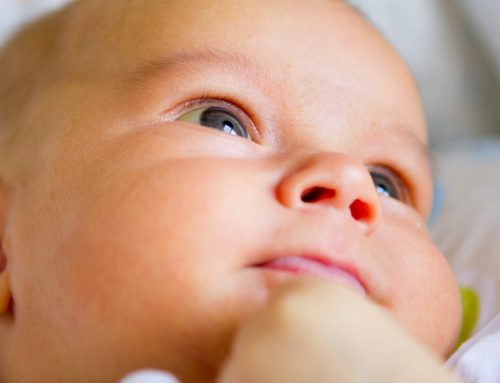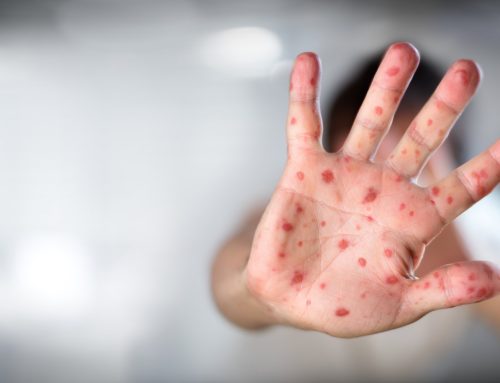A common cold is a viral infection of your baby’s nose and throat. Nasal congestion and a runny nose are the main signs of a cold.
Babies are especially likely to get the common cold because their immune systems aren’t fully developed, more so it they are often around older children. Cold viruses are spread by close contact, especially through sneezing and coughing. Colds are more common during the rainy season and winter, but your baby can get a cold at any time.
Babies typically have six to eight colds within the first year of life, but some children will have more. The average child has about 10 colds by age two. These rates can increase substantially in day care centres.
Causes
The common cold is an infection of the nose and throat (upper respiratory tract infection) that can be caused by one of more than 200 viruses. Rhinoviruses are the most common. A cold virus enters your baby’s body through his or her mouth, eyes or nose.
Your baby can be infected with a virus by:
- Air. When someone who is sick coughs, sneezes or talks, he or she might directly spread the virus to your baby.
- Direct contact. Someone with a cold who touches your baby’s hand can spread the cold virus to your baby, who can become infected after touching his or her eyes, nose or mouth.
- Contaminated surfaces. Some viruses live on surfaces for two hours or longer. Your baby may catch a virus by touching a contaminated surface, such as a toy.
Symptoms
The first signs of the common cold in a baby are often:
- A congested or runny nose
- Nasal discharge that may be clear at first but might thicken and turn yellow or green
Other signs and symptoms of a common cold in a baby may include:
- Fever
- Sneezing
- Coughing
- Irritability
- Difficulty in sleeping
- Decreased appetite
- Trouble nursing or taking a bottle due to nasal congestion
Prevention
Simple preventive measures can help keep the common cold at bay.
The best defence against the common cold is common sense precautions and frequent hand-washing. There’s no vaccine for the common cold.
- Wash your hands before feeding or touching your baby. Wash your hands thoroughly and often with soap and water for at least 20 seconds. If soap and water aren’t available, use an alcohol-based hand sanitizer that contains at least 60% alcohol.
- Clean your baby’s toys and pacifiers often. Clean frequently touched surfaces. This is especially important if someone in your family or your baby’s playmate has a cold.
- Keep your baby away from anyone who’s sick. If you have a newborn, don’t allow visits from anyone who’s sick. If possible, avoid public transportation and public gatherings with your newborn.
- Teach your older children (and the adults too) the importance of hand-washing. Avoid touching your eyes, nose or mouth with unwashed hands.
- Teach everyone in the household to cough or sneeze into a tissue. Throw away used tissues right away and then wash your hands thoroughly. If you can’t reach a tissue in time, cough or sneeze into your elbow. Then wash your hands.
- Select a child care centre carefully. Look for a child care setting with good hygiene practices and clear policies about keeping sick children at home.
Treatment
There’s no cure for the common cold. Most cases of the common cold get better without treatment, usually within a week to 10 days, but a cough may linger for a week or more. Antibiotics don’t work against cold viruses.
Treatment for the common cold in babies usually involves relieving symptoms by giving fluids to them and keeping them hydrated, along with keeping their nasal passages open. While very young infants should see a doctor at the first sign of cold, parents should be aware of more serious conditions that might require a doctor’s attention if symptoms worsen.
Over-the-counter (OTC) medications generally should be avoided in babies.
When to see a doctor
Your baby’s immune system is still developing. Most colds are simply a nuisance. If your baby has a cold with no complications, it should resolve within 2 weeks. But keep a close watch on the signs and symptoms. If symptoms don’t improve or if they worsen, it’s time to talk to your paediatrician.
In newborns, it’s especially important to make sure that a more serious illness isn’t present, especially if your baby has a fever.
Seek immediate medical help if your baby:
- Has difficulty breathing or is bluish around the lips
- Has unusually low energy or sleepiness
- Coughs hard enough to cause vomiting or changes in skin colour
- Coughs up blood-tinged mucus
- Refuses to nurse or accept fluids



